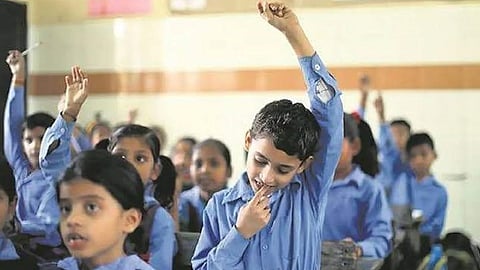

International school boards such as the International Baccalaureate (IB), Cambridge Assessment International Education (CAIE), and Western Australian Certificate of Education (WACE) are looking to partner with Indian state governments to implement systemic faculty development programmes (FDPs) for teacher training.
The increased interest comes at a time when at least 15 foreign universities have announced plans to establish campuses in India, as the country's rising per capita income and global exposure drive demand for high-quality international education with flexible curricula and skill development.
According to Angela Meikle, head of IB World Schools, India ranks among the IB’s fastest-growing markets; the number of authorised IB schools has risen from 183 in 2019 to 258 in the 2024-25 academic year, Business Standard reports.
Meanwhile, the newer entrant WACE aims to partner with at least 100 schools across India in the next three years, starting from three schools in Karnataka.
A key priority is expanding beyond the major metropolitan regions. The boards are increasingly targeting Tier-2 and Tier-3 cities such as Indore, Lucknow and Coimbatore, where demand for flexible, globally-oriented education is rising.
While annual fees in IB schools may run from around Rs 4.5 lakh to over Rs 27 lakh, WACE-affiliated schools hope to offer programmes at about Rs 1.5 lakh per year, which is roughly one-third or one-fourth of typical international-board fees.
In terms of teacher support, the boards are proposing extensive professional-development regimes. For example, WACE plans to deliver 150 hours of training annually, half in-person with Australian experts and half online. These sessions don’t just address classroom teachers, but also leadership, sports and co-scholastic faculty.
